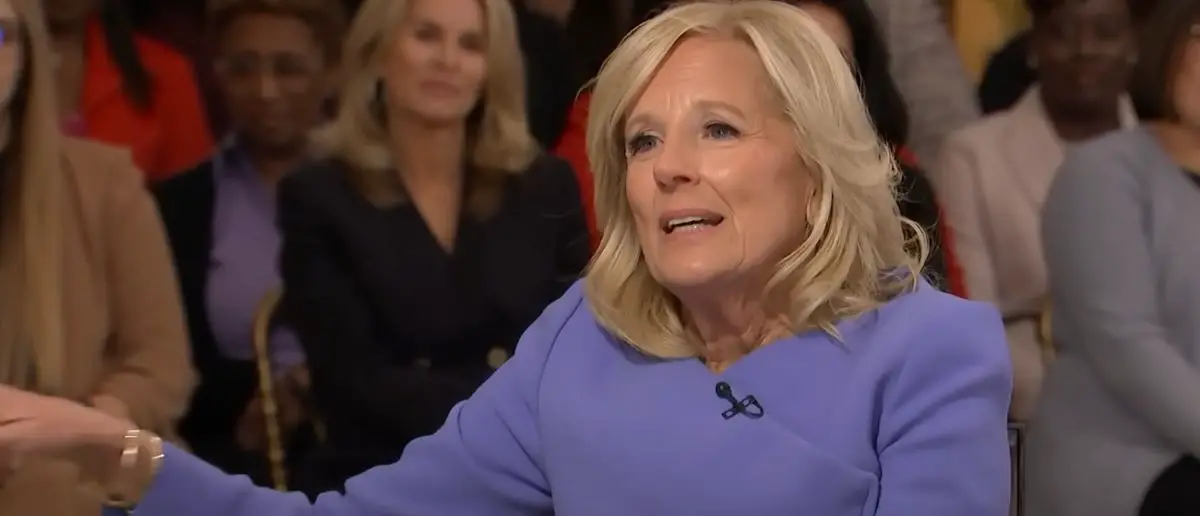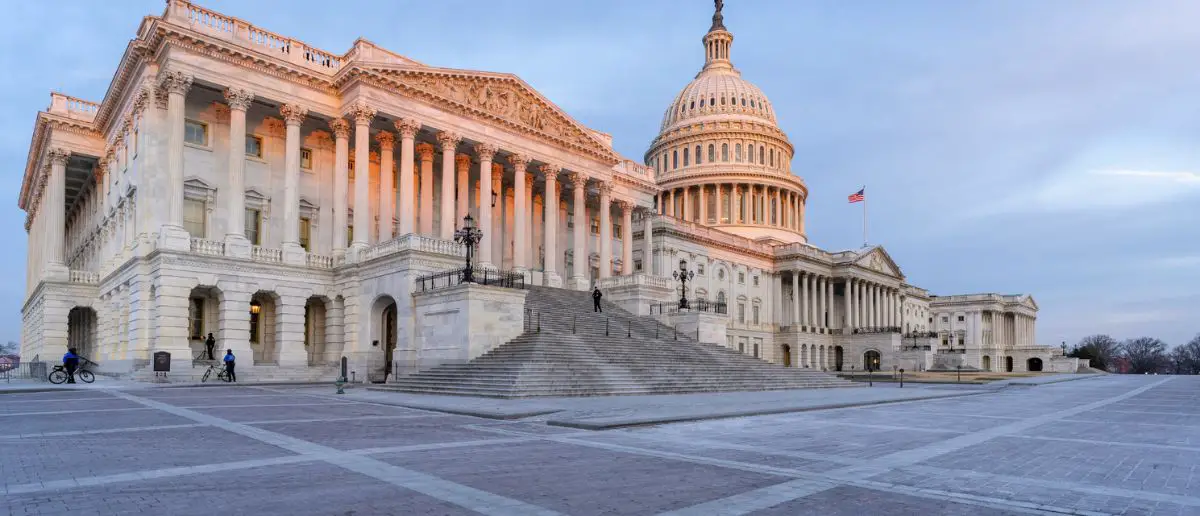
The dirt on the Biden admin is coming to the surface. It’s worse than anyone thought.
Because the U.S. House just dropped a mind-blowing exposé that implicates Joe Biden in treason.
China’s Growing Espionage Campaign On Joe Biden’s Watch
Two years ago, revelations emerged suggesting that Joe Biden’s family had received millions of dollars in payments linked to communist China, sparking immediate concerns about potential conflicts of interest and raising questions about what Beijing may have gained in return. As new evidence surfaces, it appears that China’s ambitions are far more expansive, and the U.S. could be facing a more significant national security threat than initially thought. Recent findings uncovered by the U.S. House of Representatives now suggest that Beijing succeeded in launching an extensive espionage campaign during the last administration’s tenure.
The House Homeland Security Committee’s report, released just last week, sheds light on China’s growing surveillance efforts, documenting more than 60 espionage operations across 20 U.S. states. These operations have exposed the sheer scale of Beijing’s ongoing efforts to steal America’s intellectual property and military technologies, raising alarms about the potential long-term damage to U.S. security and economic interests.
One of the most embarrassing and controversial episodes of the Biden administration occurred two years ago when a Chinese spy balloon, which had flown over the U.S. mainland for days without being shot down, raised tensions and made headlines. The balloon, which likely contained technologies from multiple U.S. companies, exemplified how China exploits its relationships with the U.S. to gain critical advantages, even using American innovations to further its espionage efforts.
“There are still people who see China like we used to see it as an economic partner. They are not that. They are an enemy,” remarked Mark Green, the Chairman of the House Homeland Security Committee, in an interview with reporters.
The Chinese Strategy for Dominance
China’s leadership, under Xi Jinping, is clearly focused on a vision of global dominance, striving to place China at the top of the international order. Green emphasized that Beijing aims to reshape the world order to its advantage, and if that means using theft or creating internal disruption in the U.S., they will do so without hesitation. “If they can get that through theft of intellectual property, or they can create disruption inside our own country, they’re going to do that,” Green warned.
To counter these efforts, Green has been proactive in raising awareness among his colleagues, particularly about China’s aggressive tactics to steal U.S. technological innovations. One significant step he has taken is reintroducing the China Technology Transfer Control Act, a proposed piece of legislation that would impose tougher export controls to prevent the Chinese military from acquiring sensitive U.S. technologies.
Under the bill, any transfer of sensitive technology or assets would require an additional export license, providing an extra layer of scrutiny beyond the existing review by the Committee on Foreign Investment in the United States (CFIUS). Green expressed concern over the perceived laxity of bureaucratic approvals for sales to China, which could ultimately harm U.S. national interests. He referenced the spy balloon incident, explaining that such technologies should be restricted to prevent them from falling into Chinese hands.
In addition to federal measures, Green applauded the efforts of states like Texas and Virginia, which have taken action to limit the use of Chinese apps like TikTok and DeepSeek AI. These apps have been known to collect valuable data on American citizens, raising concerns about privacy and national security.
“States need to act. Local governments need to act,” Green asserted, recognizing that local governments are particularly vulnerable to China’s cyber threats. He also noted that China has successfully infiltrated U.S. critical infrastructure, including telecommunications, making vigilance at all levels of government crucial.
The Scope of China’s Espionage Campaign
The recent report from the Homeland Security Committee documents a staggering 60 espionage cases across 20 states that occurred after President Biden assumed office, many of which occurred during a period when counterespionage efforts were reportedly relaxed. This includes successful operations that targeted U.S. academia, where China allegedly engaged in stealing intellectual property and influencing research.
These 60 new cases add to the 224 reported incidents of Chinese espionage targeting the U.S. between 2000 and 2023, illustrating the depth and continuity of the threat. The problem has become so widespread that the FBI now opens a new counterintelligence operation targeting China roughly every 12 hours. Since 2018, approximately 80% of all espionage cases opened by the FBI are linked to Chinese interests, with 60% of trade secret theft cases being attributed to China.
FBI Director Christopher Wray recently called China’s espionage activities the “greatest long-term threat to our nation’s information and intellectual property, and to our economic vitality,” highlighting the urgency with which this issue must be addressed.
In the last few months alone, several high-profile espionage cases have come to light, demonstrating just how aggressive China has become in pursuing its objectives. In one notable case, Chinese national Leon Ding was indicted in February 2024 for stealing AI secrets from Google. According to the indictment, Ding allegedly uploaded over 1,000 confidential files to his personal Google Cloud account between May 2022 and May 2023.
In another case, Chen Jinping, a New York City resident, pleaded guilty to acting as an illegal agent for China, operating an undeclared police station for China’s Ministry of Public Security in Manhattan. Additionally, Yinpiao Zhou, a Chinese citizen, was arrested for allegedly using a drone to take photographs of the Vandenberg Space Force Base in California, a facility critical to U.S. space operations.
These cases reflect a growing urgency among lawmakers and intelligence officials to adopt tougher measures against China, including the imposition of tariffs and restrictions on Chinese chemicals used by drug cartels to produce fentanyl, a deadly illicit drug that has ravaged American communities.
Rep. Andy Biggs (R-Ariz.) recently called for increased tariffs and stronger incentives to encourage businesses to relocate their operations from China back to the U.S. He emphasized that the connection between China and the fentanyl epidemic in the U.S. cannot be ignored, citing intelligence suggesting that Chinese chemists are often involved in the production of fentanyl in U.S. labs.
“It is time we get tough with China on this issue,” Biggs declared, underscoring the need for a comprehensive strategy to counter China’s espionage efforts and its growing influence on U.S. soil.
China’s espionage campaign against the U.S. is no longer a distant threat — it is an ongoing and ever-expanding reality. As Beijing continues to steal critical intellectual property, infiltrate U.S. infrastructure, and engage in covert operations, lawmakers and intelligence officials are scrambling to put measures in place to protect U.S. interests. The revelations about the scope of Chinese espionage should serve as a wake-up call for the United States.
Stay tuned to the DC Daily Journal.





